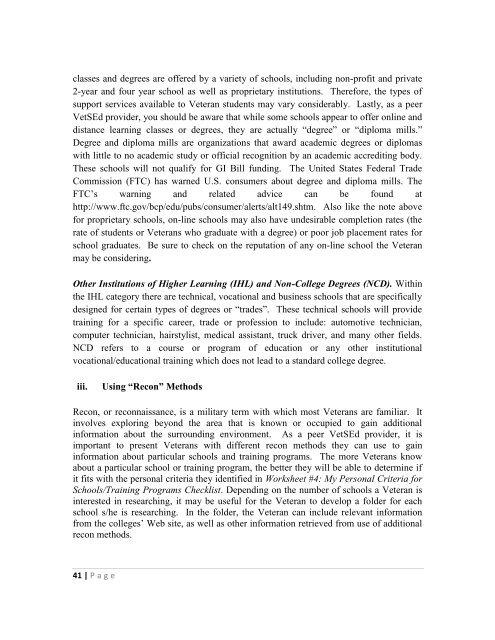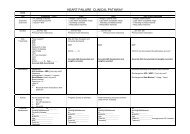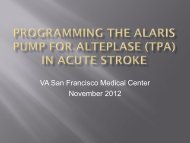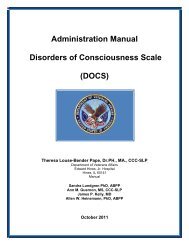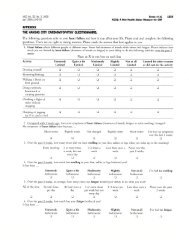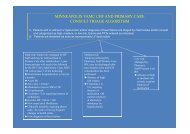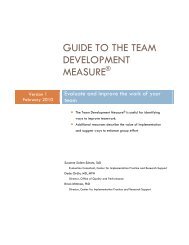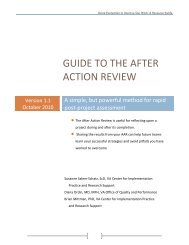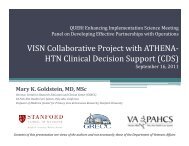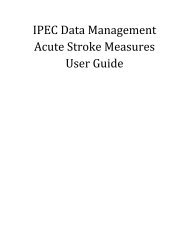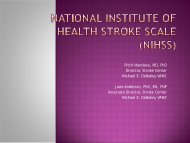The Veteran Supported Education Service Treatment Manual: VetSEd
The Veteran Supported Education Service Treatment Manual: VetSEd
The Veteran Supported Education Service Treatment Manual: VetSEd
Create successful ePaper yourself
Turn your PDF publications into a flip-book with our unique Google optimized e-Paper software.
classes and degrees are offered by a variety of schools, including non-profit and private<br />
2-year and four year school as well as proprietary institutions. <strong>The</strong>refore, the types of<br />
support services available to <strong>Veteran</strong> students may vary considerably. Lastly, as a peer<br />
<strong>VetSEd</strong> provider, you should be aware that while some schools appear to offer online and<br />
distance learning classes or degrees, they are actually ―degree‖ or ―diploma mills.‖<br />
Degree and diploma mills are organizations that award academic degrees or diplomas<br />
with little to no academic study or official recognition by an academic accrediting body.<br />
<strong>The</strong>se schools will not qualify for GI Bill funding. <strong>The</strong> United States Federal Trade<br />
Commission (FTC) has warned U.S. consumers about degree and diploma mills. <strong>The</strong><br />
FTC‘s warning and related advice can be found at<br />
http://www.ftc.gov/bcp/edu/pubs/consumer/alerts/alt149.shtm. Also like the note above<br />
for proprietary schools, on-line schools may also have undesirable completion rates (the<br />
rate of students or <strong>Veteran</strong>s who graduate with a degree) or poor job placement rates for<br />
school graduates. Be sure to check on the reputation of any on-line school the <strong>Veteran</strong><br />
may be considering.<br />
Other Institutions of Higher Learning (IHL) and Non-College Degrees (NCD). Within<br />
the IHL category there are technical, vocational and business schools that are specifically<br />
designed for certain types of degrees or ―trades‖. <strong>The</strong>se technical schools will provide<br />
training for a specific career, trade or profession to include: automotive technician,<br />
computer technician, hairstylist, medical assistant, truck driver, and many other fields.<br />
NCD refers to a course or program of education or any other institutional<br />
vocational/educational training which does not lead to a standard college degree.<br />
iii.<br />
Using “Recon” Methods<br />
Recon, or reconnaissance, is a military term with which most <strong>Veteran</strong>s are familiar. It<br />
involves exploring beyond the area that is known or occupied to gain additional<br />
information about the surrounding environment. As a peer <strong>VetSEd</strong> provider, it is<br />
important to present <strong>Veteran</strong>s with different recon methods they can use to gain<br />
information about particular schools and training programs. <strong>The</strong> more <strong>Veteran</strong>s know<br />
about a particular school or training program, the better they will be able to determine if<br />
it fits with the personal criteria they identified in Worksheet #4: My Personal Criteria for<br />
Schools/Training Programs Checklist. Depending on the number of schools a <strong>Veteran</strong> is<br />
interested in researching, it may be useful for the <strong>Veteran</strong> to develop a folder for each<br />
school s/he is researching. In the folder, the <strong>Veteran</strong> can include relevant information<br />
from the colleges‘ Web site, as well as other information retrieved from use of additional<br />
recon methods.<br />
41 | P a g e


